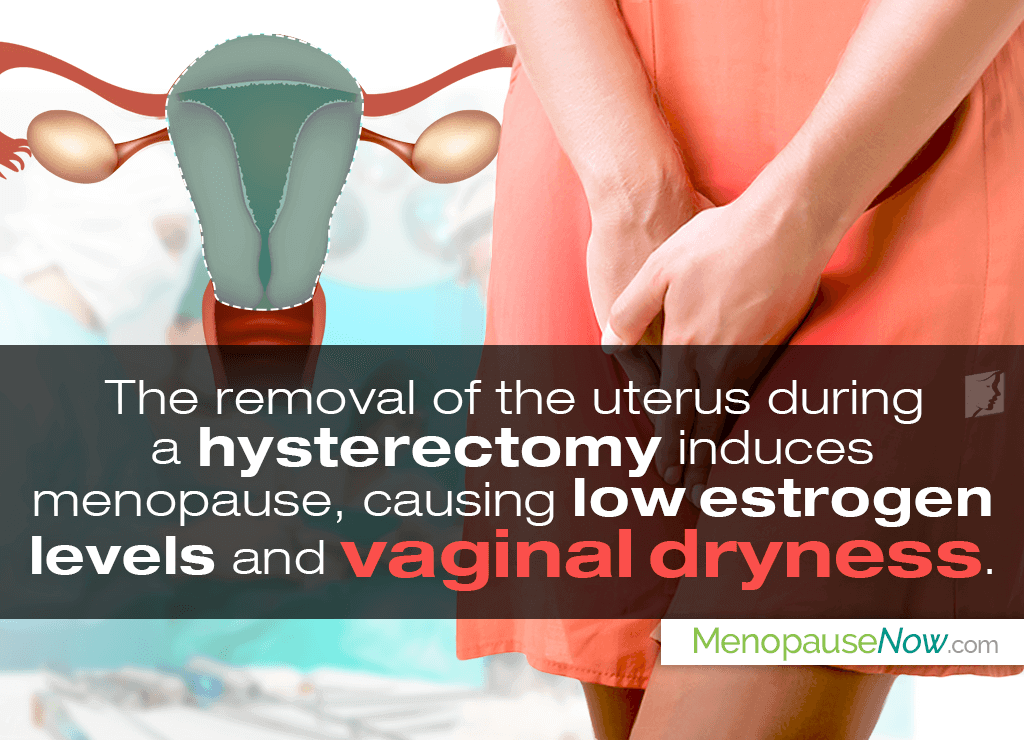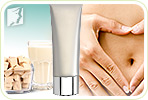Undergoing a hysterectomy has a number of effects on the body, one of the most significant of these being a possible surgical menopause. This can bring with it troubling symptoms, such as vaginal dryness. Continue reading to learn more about how a hysterectomy affects vaginal dryness and how to deal with vaginal dryness post-hysterectomy so that you are armed with the information necessary for optimal reproductive health.
What Is Vaginal Dryness?
Vaginal dryness occurs when the vaginal tissues do not secrete sufficient moisture to lubricate the vagina, resulting in a feeling of dryness. This can make the vagina feel itchy and uncomfortable, often causing friction and pain during sexual intercourse.
As such, vaginal dryness can lead to a loss of libido and resultant problems between a woman and her partner, as well as issues with self-confidence and femininity. In the aftermath of a major surgery such as a hysterectomy, these may be especially difficult to handle.
Hysterectomy and Vaginal Dryness
A hysterectomy is performed for several reasons, some of most common being endometriosis, fibroids, infections, and cancer. It is the second-most frequently done surgery to women who are of childbearing age.
Regardless of a woman's age, the removal of the uterus during a hysterectomy normally induces menopause within five years of the surgery.
This is due to decreased blood supply to the reproductive organs, causing low estrogen levels and leading to vaginal dryness and other menopause symptoms after a hysterectomy.
Also, it is important to note that if a woman was suffering from vaginal dryness before a hysterectomy, the symptom could worsen due to this drastic reduction in estrogen levels. Luckily, effective management and treatment options are available.
Dealing with Vaginal Dryness after Hysterectomy
It is possible to effectively combat vaginal dryness post-hysterectomy. Some methods that can help include:
- Use a natural vaginal moisturizer on a regular basis or a water-based lubricant before sex, both of which can instantly relieve dryness.
- Make lifestyle adjustments that include following a healthy diet, exercising, and taking herbal supplements to help balance your estrogen levels.
- Make time for non-coital sex. Intimacy is not only important for emotional well-being, but also promotes blood circulation to the genitals, stimulating the secretion of moisture in the vaginal tissues and helping to eliminate dryness after hysterectomy.
- Talk to other women who have undergone a hysterectomy for advice and support. Online support groups, close friends and family members, or a therapist or counselor can help you confront and deal with emotional and physical discomforts you may have post-hysterectomy.
After a hysterectomy, your body is recovering from a major operation. So, try not to be hard on yourself if you're experiencing vaginal dryness and other symptoms. Instead, strive to look for natural solutions to treat vaginal dryness as you nurture your body back to health.
Sources
- McLeod Health. (n.d.). Helpful Tips for Dryness After Hysterectomy or Menopause. Retrieved May 16, 2019, from https://www.mcleodhealth.org/blog/helpful-tips-dryness-hysterectomy-menopause/
- National Women's Health Network. (2015). Hysterectomy. Retrieved May 16, 2019, from https://www.nwhn.org/hysterectomy/




